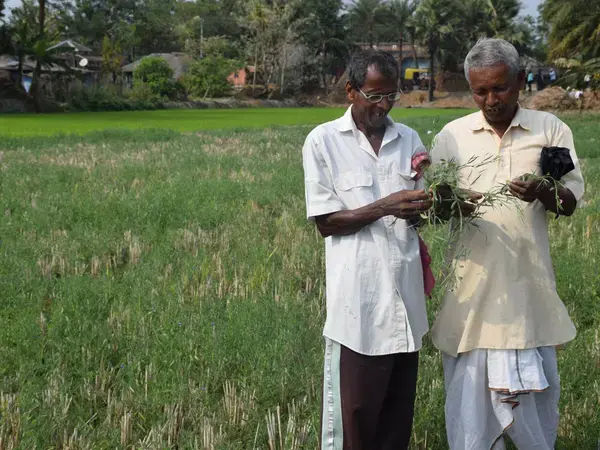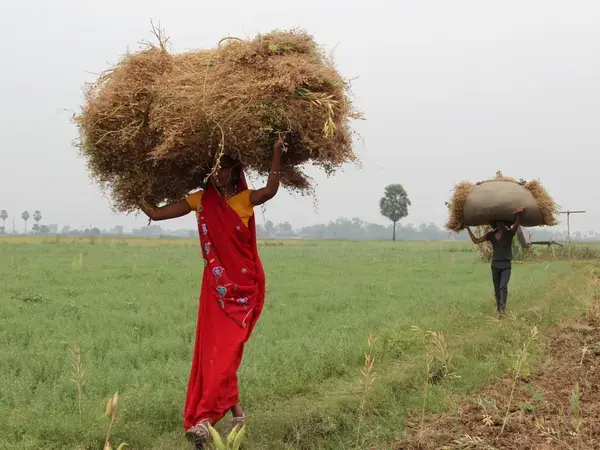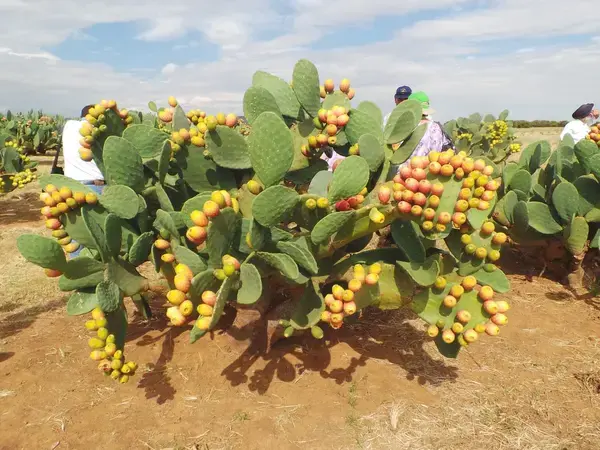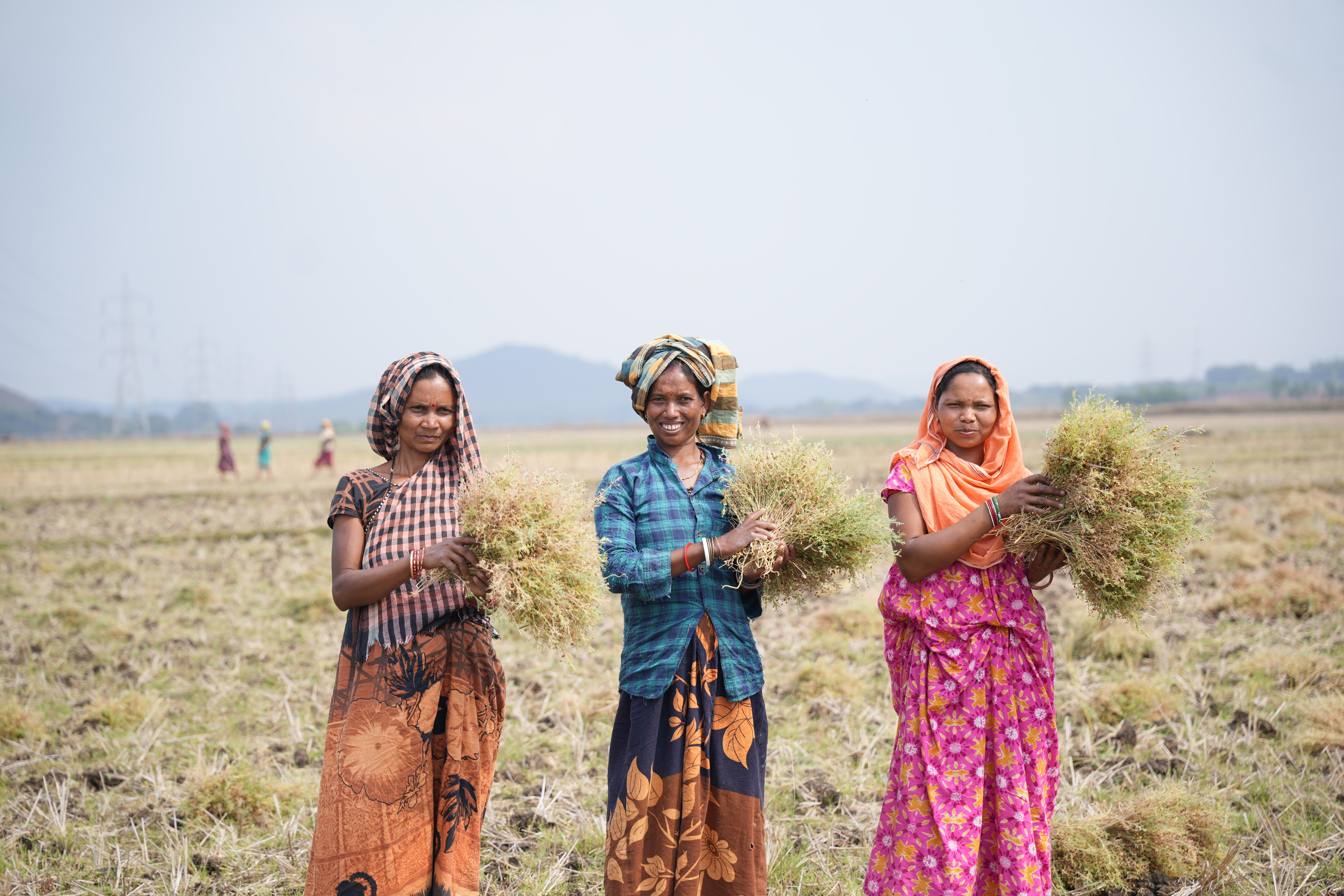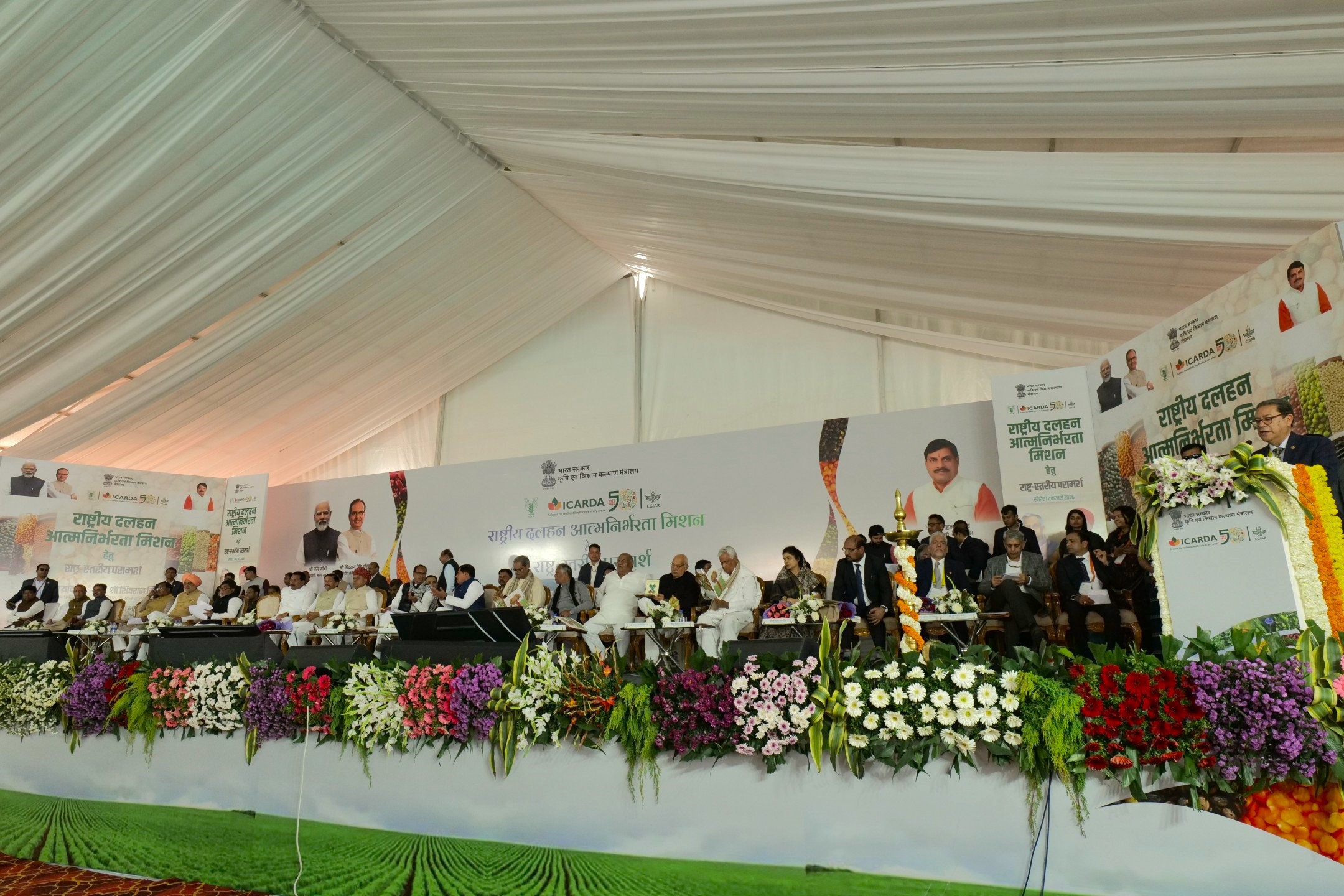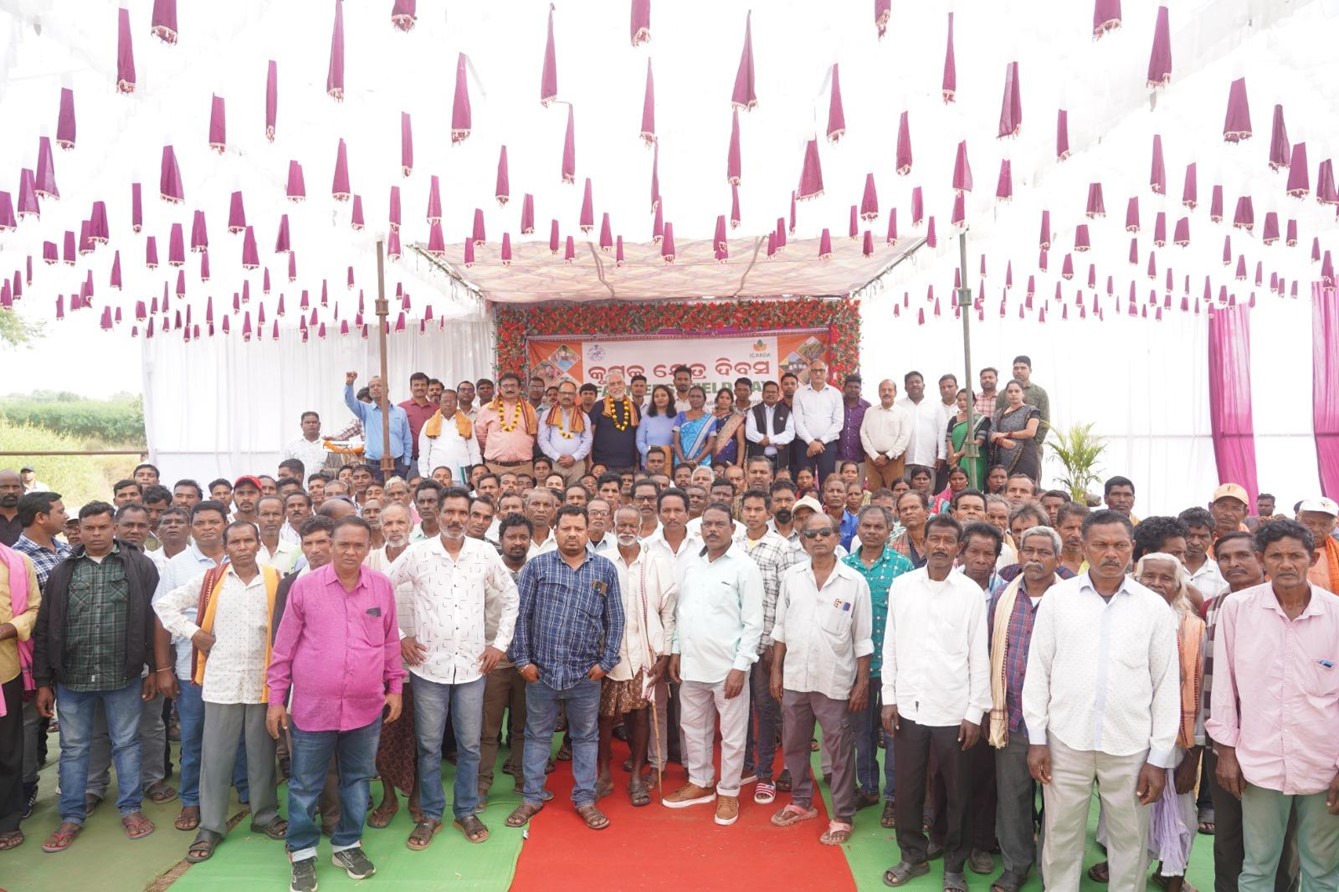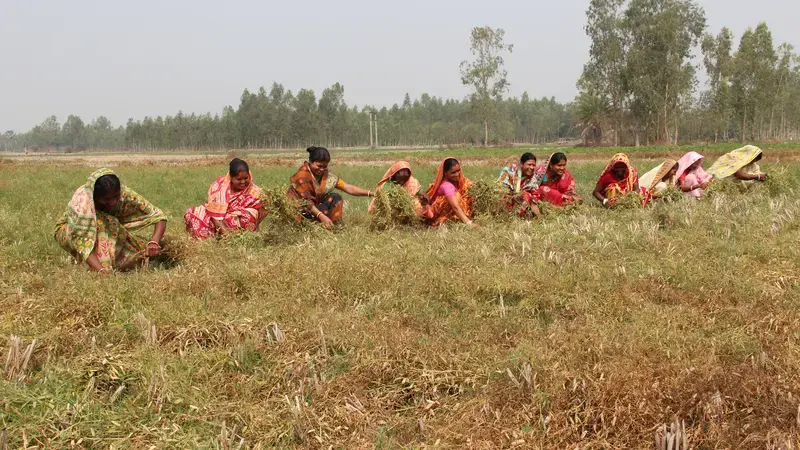
ICARDA India Country Office established in 2008
Country manager:
Shiv Kumar Agrawal , Regional Coordinator, Head of FLRP
South Asia & China Regional Program
ICARDA, Office Block-C, NASC Complex
DPS Marg, Pusa
Mobile: +91-8375049950
[email protected]
Overview
ICARDA established its South Asia and China Regional Program (SACRP) office in New Delhi, India, in the year 2008 with support from the Indian Council of Agricultural Research (ICAR), Department of Agriculture & Cooperation (DAC), Ministry of Agriculture and Farmers Welfare, Government of India. We provide innovative, climate-smart, and science-based solutions that improve rural livelihoods in dry regions of South Asia and China. ICARDA carries out basic, strategic, and applied research activities in India in collaboration with different ICAR institutes and State Agricultural Universities under the ICAR-ICARDA workplan and bilateral projects funded by various donors, including ICAR, State Governments, CGIAR, OCP Foundation, International Fund for Agricultural Development (IFAD), OPEC Fund for International Development (OFID), and the Crop Trust.
India is home to over 1.4 billion people, making it the world's most populous country. It covers a range of climatic regions: the tropical south can be wet, dry, or humid, while temperate alpine mountain ranges define the Himalayan north. Year-round, it experiences four different seasons, two of which are shaped by the effects of the monsoon. The country is divided into 15 agro-ecological zones, each differing in climate, soil type, fertility condition, cropping patterns, and hydrology.
India is the fourth largest country in the world in terms of agricultural output, first in pulses and second in wheat. The agriculture sector contributes about 19.9% of the total GDP and employs more than 50% of the workforce. Farming is the biggest sector in India and plays a key role in food and nutritional security and the socio-economic development of the country.
About 35% of the total agricultural land in India is irrigated, and the cultivation of two-thirds of the cultivated land depends on seasonal rainfalls. Agricultural production in the country is vulnerable to damage from extreme climatic events. Rise in average temperatures, change in rainfall patterns, increasing frequency of extreme weather events such as droughts and floods, and shifting of agricultural seasons have been observed in different agro-ecological zones of India. Four major farming systems prevail in India: irrigated, rainfed, silvo-pastoral, and desert farming systems. ICARDA is predominantly involved in research and development for the rainfed system in partnership with Indian institutions.
ICARDA India Activities
The research portfolios of ICARDA in India include the development and deployment of climate-smart and cost-effective technologies for rainfed systems, scaling of pulses technologies, intensification and diversification in fallow lands with pulses, and introduction of spineless cactus as alternative feed resources.
Programs on improving crop, water, and land productivity are implemented with major activities related to delivering genetic gain through improved germplasm, enhancing system productivity through efficient cropping systems, geo precision farming, market linkages, and capacity development of young researchers, students, farmers, and women.
In its decentralization strategy, ICARDA launched its Food Legume Research Platform at Amlaha near Bhopal in Madhya Pradesh, India, on 24th February 2016. The platform aims to serve India and the region by generating and deploying innovations for pulse-based production systems to reduce dependencies on imports.
ICARDA, with its South Asia & China regional program, New Delhi, and NARS collaborators in India, is engaged in delivering pulses technologies for rice-fallow monocropping lands (around 11.65 million ha) to boost pulses production. The initiative increases cropping intensity and provides sustainability in rice-based production systems. Appropriate pulse crops, varieties, and management practices have been identified and promoted in nine Indian states through several projects.
Annually, ICARDA introduces 1200 to 2700 germplasm accessions of barley, faba bean, grass pea, lentil, Kabuli chickpea, and wheat through international and special nurseries based on indents received from partners. These nurseries constitute germplasm, breeding lines, segregating populations, elite parents for hybridization, and crop wild relatives (CWR). These are evaluated in diverse agro-ecological conditions. Promising materials are selected and reevaluated through all India coordinated yield trials for eventual release as varieties and further use in hybridization to widen the genetic base and introgress climate smart traits.
ICARDA developed innovative tools based on remote sensing and artificial intelligence to support the scaling of improved technologies (cactus and lentil varieties), with ex-ante assessment and suitability mapping of fallow lands and cropping systems (assessing regions and methods for suitability of said technologies).
To address the widespread fodder shortage, with support from ICAR and the Ministry of Agriculture in India, ICARDA began exploring the potential of spineless cactus pear as a source of fodder in 2013. Cactus also demonstrates great adaptive traits under harsh agro-climatic conditions in dryland areas of India and often thrives where no other crops can grow.
IMPACT
With the establishment of FLRP, ICARDA discovers and deploys climate smart traits into elite germplasm of lentils, Kabuli chickpea, grasspea, faba bean, barley and wheat. Recently, 490 Kabuli chickpea, 398 lentils, 259 grasspea, 128 faba bean, 2,164 barley, and 1,625 durum wheat lines have been shared with 15 partner institutions.
ICARDA’s research on genetic enhancement has led to the development of 35 varieties in India, including 16 lentils, 12 kabuli chickpea, and 7 barley varieties adapted for cultivation in various agro-ecological zones. Some of them have special traits like biofortification, salinity tolerance, the earliness with high biomass, and multiple resistance to diseases and pests. In lentil, super early (Pusa Ageti), biofortified (IPL 220), and salinity tolerant (PDL1) varieties have emanated from ICARDA germplasm.
Rice-fallow mapping to understand the suitability of pulse crops and varieties (fallow period, residual soil moisture retention after rice harvest, soil type, etc.) was accomplished in Odisha, and West Bengal states. For short fallow periods and light soil conditions, lentil is the best fit; for long fallow (more than 110 days) and clay soil conditions, chickpea and grass pea are suitable.
Research findings on zero-tillage are upscaled in farmers’ fields in Haryana, Rajasthan (millet-chickpea), and Bihar (rice-chickpea) (with IARI). The lentil variety RVL-31 is best for zero-tillage cultivation in soybean fields in Madhya Pradesh. Profitable cropping patterns were identified in the Indira Gandhi Canal Command area, which were 3.3, 4.9, 5.7, and 6.1 times more profitable than mustard, chickpea, cumin, and wheat, respectively.
Sixty-seven cactus varieties have been introduced. Mother nurseries with these varieties have been established at three ICAR institutions and FLRP, Amlaha, of which 18 are well-adapted and are multiplied by 19 nurseries at agricultural science centres and 20 village nurseries. Cladodes (shoot systems) are also supplied to farmers. Altogether, more than 350,000 cladodes are provided in six states of India.
A total of 34,750 farmers were trained on improved production technologies, quality seed production, storage, etc., and 14,400 women were empowered with new knowledge and skills in value addition, processing, packaging, and marketing. Housewives were also trained on Physico-chemical detoxification of grass pea for safe consumption.
The introduction of pulses (lentil, grass pea, and chickpea) in rice fallows is one of the key scaling activities in South Asia. In this endeavour, the program was implemented in states benefitting more than 55,000 farmers. Lentil varieties, HUL-57, Moitree, KLS-218, and grass pea varieties Mahateora, Nirmal, Prateek, and Ratan are farmer-preferred varieties in rice-fallow conditions.

